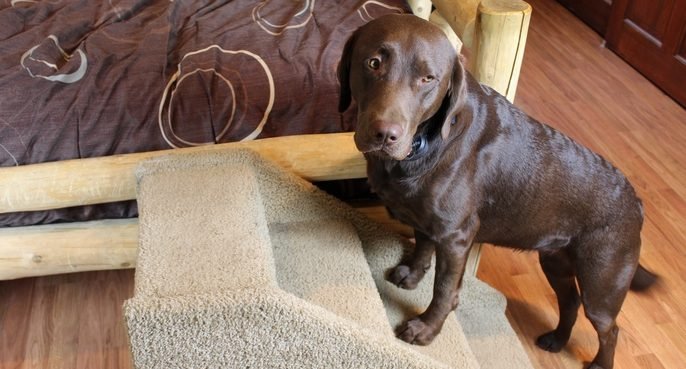
Written by Nick Burton
Whether you’ve recently adopted a senior pet or have been lucky enough to share many wonderful years with your beloved animal companion, there are some things you should know about caring for an older dog, cat, rabbit, guinea pig, or another small animal companion. This guide from the Companion Animal Protection Society (CAPS) will help you to identify the signs of aging in common household pets and give your animal companion everything he/she needs to feel their best as they navigate their Golden Years.
Identify the Signs of Seniorhood
 The age at which most pets reach seniorhood varies by species and breed, but several signs can help you to determine whether your animal companion is aging and needs additional support from you and your household. These signs include:
The age at which most pets reach seniorhood varies by species and breed, but several signs can help you to determine whether your animal companion is aging and needs additional support from you and your household. These signs include:
- Changes in sleep, eating, grooming, and physical activity.
- The development of medical issues such as cancer, kidney disease, or diabetes.
- Changes in coat, nails, eyesight, hearing, and mobility.
- Confusion or disorientation.
- Anxiety, weakness, and muscle atrophy.
According to the American Veterinary Medical Association (AVMA), dogs and cats become seniors at about seven years of age, but larger breeds of dogs may reach seniorhood as young as five. Rabbits, the third most popular animal companion in the U.S, reach seniorhood between the ages of five and eight — while guinea pigs are typically considered seniors at about five years of age.
Visit the Vet’s Office

To make your aging animal companion as comfortable as possible as he navigates his Golden Years, be sure to bring him in for at least two wellness exams each year — or more frequently if he’s been diagnosed with a medical condition. Your vet can offer recommendations on diet and nutrition, exercise, medication and supplementation, and different ways to improve your companion’s living environment.
If you’re having trouble affording the cost of your senior pet’s veterinary care, financing options and free or lost-cost vet services are available to those who qualify. The Humane Society of the United States (HSUS) shares a few options on its website.
Look for Senior-Friendly Pet Supplies

In addition to seeking veterinary care for your aging animal companion, several senior-friendly supplies can help to make your pet more comfortable as he grows older. A few of them include:
- Orthopedic beds for added support
- Portable pet stairs and ramps
- Lifting harnesses for senior dogs
- Dog booties for improved traction
- Pet-friendly rugs and slip-proof mats for your home
- Low-entry litter boxes for senior cats and rabbits
If your animal companion is experiencing urinary incontinence, you could also look for pet diapers and pee pads. Washable and disposable options are both available to choose from, but reusable products are typically more durable and they’re better for the environment.
Make Sure Your Senior Companion is Getting Enough Exercise

Changes in weight and activity levels are common in senior pets, but regular physical activity is the key to keeping your animal companion healthy and fit as he ages. As such, it’s important to ensure your companion is getting plenty of gentle exercise, whether that means taking a walk outdoors, visiting a local dog park, socializing with other pets, or enjoying an indoor play session with you.
Dog treadmills are another great option for exercising your senior pooch, especially if your canine doesn’t have the energy or strength to play outdoors and go on long walks like he did when he was younger. Just be sure to consider the treadmill’s maximum speed, size, weight limit, and noise levels before purchasing a treadmill for your senior dog.
Some rabbit rescues even organize Hoppy Hour events to give domesticated rabbits a chance to romp around and socialize with other bunnies, while aging guinea pigs may enjoy obstacle courses and supervised exercise in a small enclosed room. For smaller animals such as mice, rats, hamsters, and gerbils, exercise wheels and balls are great options.
Give Your Senior Companion the Great Life She Deserves

If you’re lucky enough to care for a senior animal companion, there are a number of steps you can take to make her Golden Years the best ones to date. By improving your pet’s diet, nutrition, playtime, and living environment, your companion will feel healthy, happy, and comfortable as she navigates her senior years.
Affiliate links are used in this article. CAPS will receive a small profit from any sales of products mentioned. All profits go directly to support our mission to protect companion animals.




